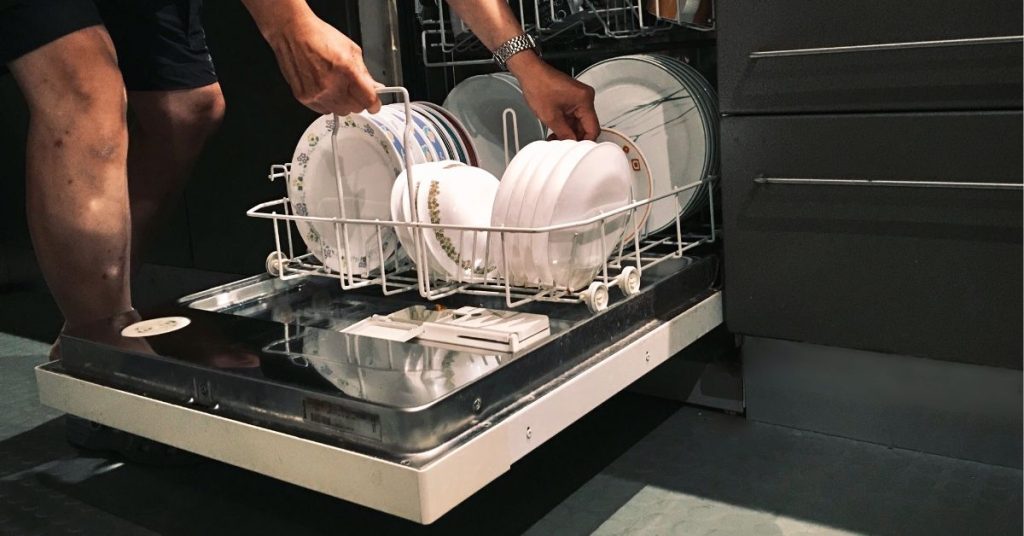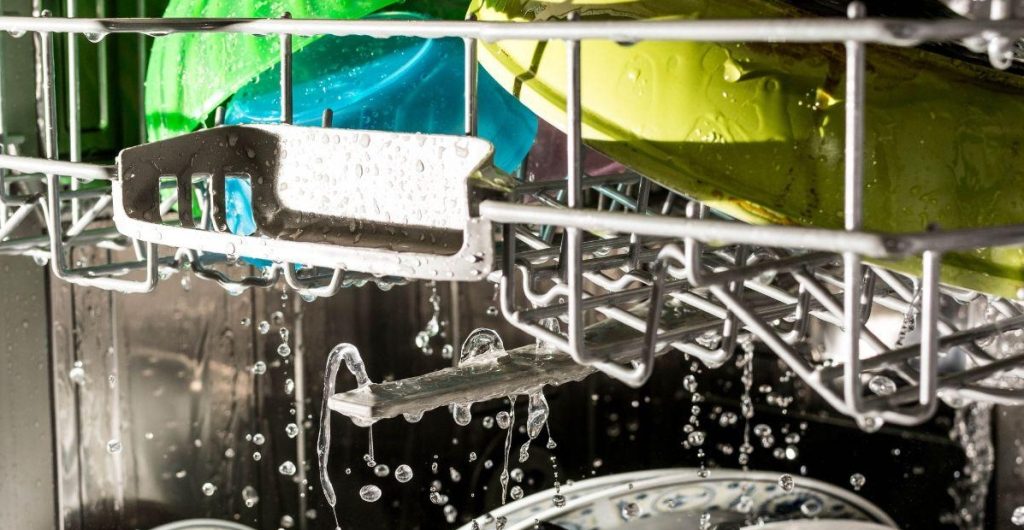In the kitchen, you need dishwashers because they are the most helpful appliance in the entire process. However, many users are always in the dark about how long a dishwasher takes to run. The run time depends on the cycle selected, the make and model of a dishwasher as well as the size of the load. Evaluating these parameters is important to manage meals, and optimize general kitchen sequence planning.
In this article, you will get to know more about the working time of selective cycles, factors that affect them, and tips to increase the efficiency of a dishwasher. It is also important that you should know on how this dishwasher works and how can your dishes be in good condition. So, let’s dive in.
How Long Does a Dishwasher Run?
Dishwasher run time is on average 1.5 to 4 hours depending on the cycle and or other factors.
Normal Cycle
This cycle normally takes between 2 and 3 hours. This means that it involves a lot of thinking and hard work and can also be used daily to give a thorough cleaning.
Heavy Cycle
This cycle can take 3 to 4 hours, which is suitable for dirty utensils such as pots and pans.
Quick Cycle
On the flip side, the fast cycle is about 1 hour if you’re in a hurry. While it’s great for lightly soiled dishes, it might not clean as well as longer cycles.
Eco-Cycle
Typically lasting between 2 to 3 hours, this cycle conserves energy and water while still delivering effective cleaning, although it may take longer than a normal cycle.
Sanitize Cycle
This cycle can take 1.5 to 3 hours, depending on the model, and uses higher temperatures to eliminate bacteria and germs.
Choosing the proper cycle for your needs can ensure your dishes come out clean without wasting time.
Factors Affecting Dishwasher Run Time
When choosing a dishwasher cycle, consider several factors that influence how long it runs. Here are some key aspects that can affect run time:
Cycle Type
Cycles suitable for different types of cleaning need require dishwashers to run longer than others. For example, if you are using your dishwasher for a regular cycle it takes 2 to 3 hours, or a heavy cycle where it will take 3 to 4 hours, and this is for everyday loads.
However, a quick cycle equals around an hour, ideal for lightly dirtied pieces. Know what each cycle requires, and choose the best option for your cleaning purpose.
Dishwasher Models
Then, run times are dependent upon the make and model of your dishwasher. Today’s dishwashers are loaded with advanced technology that is used for better cleaning. I spoke to many modelers whose sensors detect how dirty a load is, cycle length adjusts accordingly.
Depending on your model, and the settings, you may have special functions such as a Sanitise cycle or an Eco cycle to run on, and this can have an effect on the run time. Choose the best cycle for your dishwasher: so that you know what your dishwasher can do.
Load Size
Significant run time is impacted by the dishes loaded into the dishwasher. Dishwashers clean better if the load is completed — they use more water and energy and require longer.
Another way to have your dishwasher not clean is to overload it. It can also cause inefficient cleaning because some items that are not adequately cleaned will block the water spray. Properly loading your dishwasher will allow water and detergent to get to all the surfaces and will get the best clean.
Water Temperature
How long your dishwasher runs is affected by the temperature of the water it uses. Warm temperatures between 120°F and 150°F (49°C to 65°C) give most dishwashers the operating variables they need to do the job. If water isn’t hot enough the dishwasher might run longer to make up for poor cleaning.
In addition, the dishes need to be sanitized at higher temperatures so that specific cycles take longer. Make sure your water heater is tuned to the right temperature so that your dishwasher runs well.
Soil Level
The level of soil on dishes being washed is another very important factor in run times. Cause dishes are baked on food or greasy, so longer cycles were required. Lightly soiled dishes may be cleaned in a few extra cycles in the dishwasher to close the cycle at its end.
The most common are the most modern dishwashers, most of which have soil sensors that alter the run time according to soil level, using the most cleaning and the least energy. It’s a matter of how dirty your dishes are and what you choose for the proper cycle.
Tips to Optimize Dishwasher Efficiency
The most efficient dishwasher helps you achieve cleaner dishes, conserve energy, and reduce run times. Here are some practical tips to enhance your dishwasher’s performance:
Load Dishes Properly
Loading is important for good cleaning. Don’t overfill the dishwasher with dishes; this can block water spray, and won’t allow for the proper cleaning. Wherever you have more oversized items, load them on the bottom rack, and smaller and more delicate items on the top shelf. Dish all so water can get to all surfaces, and use utensils to keep separate to avoid nesting.
Choose the Right Cycle
The selection of the right cycle for your load will make a big difference in run times and cleaning efficiency. On the other hand, for everyday dishware, a regular cycle is usually sufficient. Use heavy cycles on pots and pans that just won’t budge and quick cycles on ordinary dishes. If you are aware of the strength of each cycle, this will aid you in making the right cleaning choice.
Scrape, Don’t Rinse
Rinsing your dishes before putting them away may seem tempting, but it’s rarely necessary. Dishwashers are so advanced nowadays that they tackle food residue, so it’s not necessary to scrape off excess food before loading. They could waste water and energy runoff time and efficiency.
Regular Maintenance
A good working condition of your dishwasher is something that you should always pay attention to. Do this to prevent food build-up and clogs, clean the filter, and door seals, and spray arms regularly. Improper maintenance of these components requires that more water needs to circulate through the system and causes cleaning times to increase.
Use the Eco-Setting
For less loads, try turning your dishwasher to an eco or energy-saving setting. Though these settings may take longer to do the job, they are still effective, and using them can equate to huge energy savings over time.
Run Full Loads
Whenever possible, run your dishwasher only with a full load to maximize efficiency. That will save water and energy and make sure that every cycle goes as well as possible. If you have less of a load, the half-load option will help reduce some of the run times and resource consumption.
Thorough Cleaning Process
Today’s dishwashers have been engineered with enough cleaning capabilities that you won’t need to scrub a penny’s worth. The plurality of washing and rinsing cycles removes very effectively food particles, grease, and bacteria from dishes. When sanitizing items especially when using cycles that disinfect heavy soil, it is important.
Water Heating Time
Most dishwashers have a built in water heater to heat the water to the correct temperature. If you’re getting colder water, it might take a little longer to heat the water. You need to wash at higher temperatures to break down harsh food residues.
Soil Sensors
Some of the more modern dishwashers have soil sensors that shorten or lengthen the cycle so it doesn’t run as long as if you are only washing glasses and carrying them down the street. The dishwasher will extend the cycle time if the sensor senses heavily soiled dishes. The run times may also be longer because of this adaptive technology.
Eco-Friendly Settings
Eco friendly or energy saving settings will use less water and energy and require longer cycles. All these settings take longer to produce the same results as these settings work at lower temperatures and less water. They use resources but can take longer to clean dishes.
Drying Cycles
A large number of steam cycles which can add several hours to normal wash cycles, are often included in dishwashers. In the drying phase, residual heat drying or the use of fans may be used with additional minutes added to the cycle. Some dishwasher allows users to skip the drying cycle, but the dishes can be damp.
Complexity of the Cycle
Each cycle is designed with different cleaning needs in mind and, more complex ones like heavy duty or sanitizing take longer. Depending on the cycle you may be going through from washing to rinsing to sanitizing again and again.
FAQs
How long does a frigidaire dishwasher run?
Frigidaire generally takes anywhere from 1.5 to 3 hours to cycle. For example, regular cycles tend to take two to five hours to go around, while quick cycles are done in an hour or less. For more rigorous cleaning jobs that take up to 3.5 hours, you can use heavy duty cycles. The timing for your Frigidaire model is best to consult with the user manual.
How long does a ge dishwasher run?
Typically, GE dishwashers run between 1.5 and 3 hours on the cycle and model you select. Quick or typical wash cycles take about 1 hr and 2-2.5 hr, respectively. Heavily soiled dishes will take up to 3.5 hours in heavy wash cycles. The best run times are actually in the general user manual for the GE dishwasher model you own.
How long does a KitchenAid dishwasher run?
Depending on the cycle, KitchenAid dishwashers run somewhere between 1.5 and 3 hours. A regular wash cycle usually takes about 2 to 2.5 hours but a quick wash cycle takes less than an hour.
For heavy duty cleaning, cycles may take as long as 3.5 hours. Consult your KitchenAid dishwasher manual to find the best way of getting accurate run times.
Conclusion
You need to know how long a clock runs so you’ll know how to feed yourself, and how to run your kitchen efficiently. Knowing how they influence the duration of your cycle and model can also help you to choose the best settings. Your dishes will get clean and ready to use for you if you choose the right cycle, load your dishwasher correctly, and keep it maintained.







